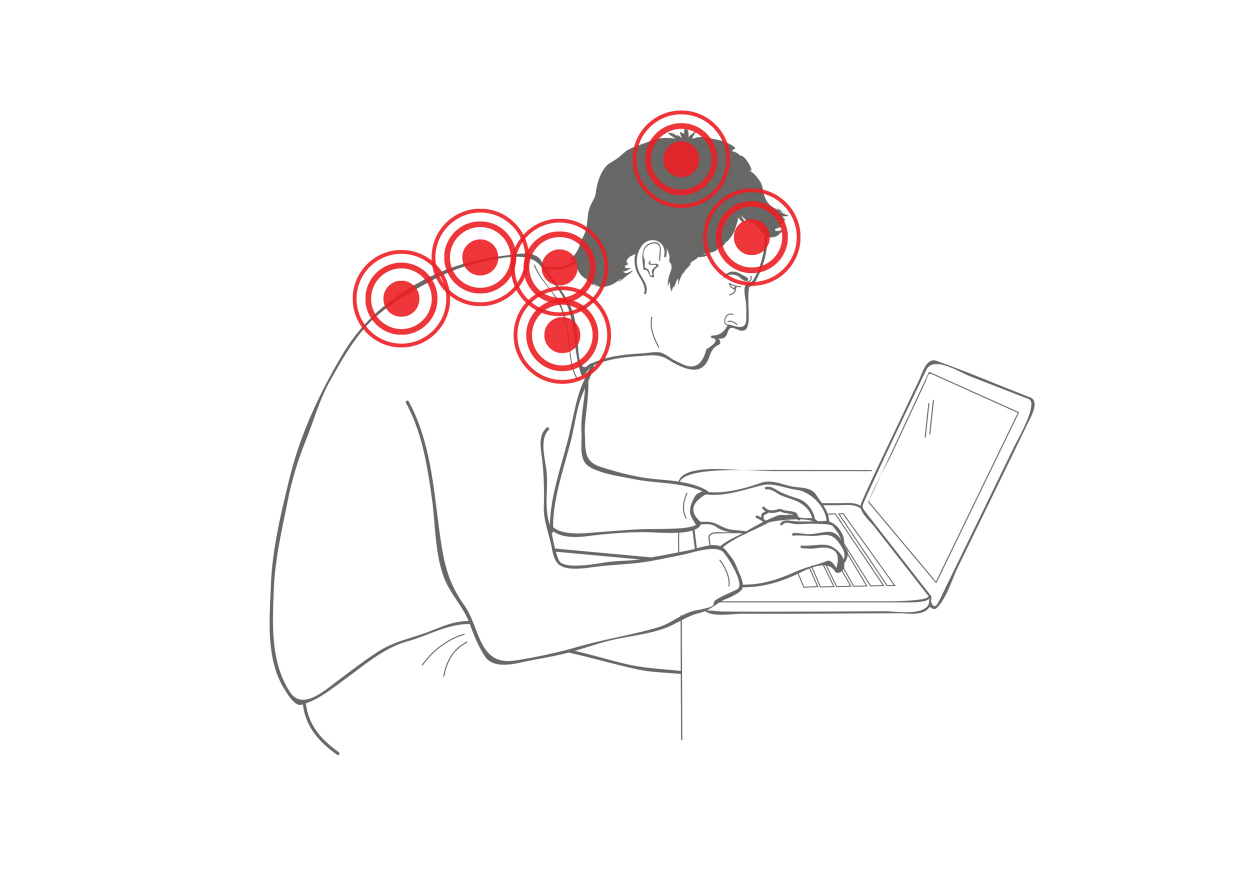How one carries themselves can impact many aspects of life, perhaps more than you might think.
Posture, “the position in which someone holds their body when standing or sitting,” is often overlooked but is actually quite important to the health and well-being of an individual.
Physical Benefits of Healthy Posture
Healthy posture has numerous positive impacts for your body. One of the perks of good posture is that it eases breathing. According to an article from usa.edu, “Slouching can reduce lung capacity, leading to shortness of breath.”
In addition to easier breathing, good posture can reduce pain. Sitting slouched or with your neck craned forward can cause neck, back, and shoulder pain. The tension in these areas can also cause headaches.
According to an article from Forbes Health, one of the main kinds of bad posture is called “text-neck” which is “the strain on the spine of people who continually look down at their cell phones, laptops or reading devices.” This is one of the main causes of posture-related pain.
Furthermore, healthy posture can aid digestion and help you avoid heartburn. Health.harvard.edu states, “Slouched posture after a meal can trigger heartburn caused by acid reflux (when stomach acid squirts back up into the esophagus).” Dr. Kyle Staller, a gastroenterologist at Harvard-affiliated Massachusetts General Hospital, further explains “‘Slouching puts pressure on the abdomen, which can force stomach acid in the wrong direction.’”
Mental Benefits of Healthy Posture
Along with the physical benefits of good posture, it is also proven to boost confidence and self-esteem.
Being hunched over and making yourself as small as possible is often associated with the feelings of fear or anxiety, while sitting or standing with your shoulders back and chin up is a sign of confidence. But did you know that this idea is actually backed by science?
There was a scientific study conducted by San Francisco State University professor Erik Peper where college students were asked to complete math problems in both a slumped and upright posture, then compare the results.
The results of the study showed that students, especially those who were anxious about math, were not able to think as clearly while slouched as opposed to sitting upright.
Although posture did help with focus, the main takeaway from the study was “how shifts in posture change[d] students’ feelings about their performance, rather than their performance itself.”
In other words, holding yourself in a confident manner (aka good posture) can boost your actual confidence and self-esteem, and sometimes your performance in certain activities!
How To Fix Bad Posture:
As you can see, there are many benefits of good posture. But how can you ensure that you practice good posture habits throughout the day?
Here is a guide from medilineplus.gov, on how to practice good posture habits:
while sitting:
-“Switch sitting positions often
-Take brief walks around your office or home
-Gently stretch your muscles every so often to help relieve muscle tension
-Don't cross your legs; keep your feet on the floor, with your ankles in front of your knees
-Make sure that your feet touch the floor, or if that's not possible, use a footrest
-Relax your shoulders; they should not be rounded or pulled backwards
-Keep your elbows in close to your body. They should be bent between 90 and 120 degrees.
-Make sure that your back is fully supported. Use a back pillow or other back support if your chair does not have a backrest that can support your lower back's curve.
-Make sure that your thighs and hips are supported. You should have a well-padded seat, and your thighs and hips should be parallel to the floor.”
While standing:
-“Stand up straight and tall
-Keep your shoulders back
-Pull your stomach in
-Put your weight mostly on the balls of your feet
-Keep your head level
-Let your arms hang down naturally at your sides
-Keep your feet about shoulder-width apart”
In addition to these, some other tips are to keep your computer eye level while working at a desk so that your neck isn’t craned down, and to also be mindful of your position while on the phone. Practicing yoga and exercising may also help you to maintain good posture as well!
In an age where many jobs are static and our lives are digital, it is especially important to be aware of your posture to live your best life!



